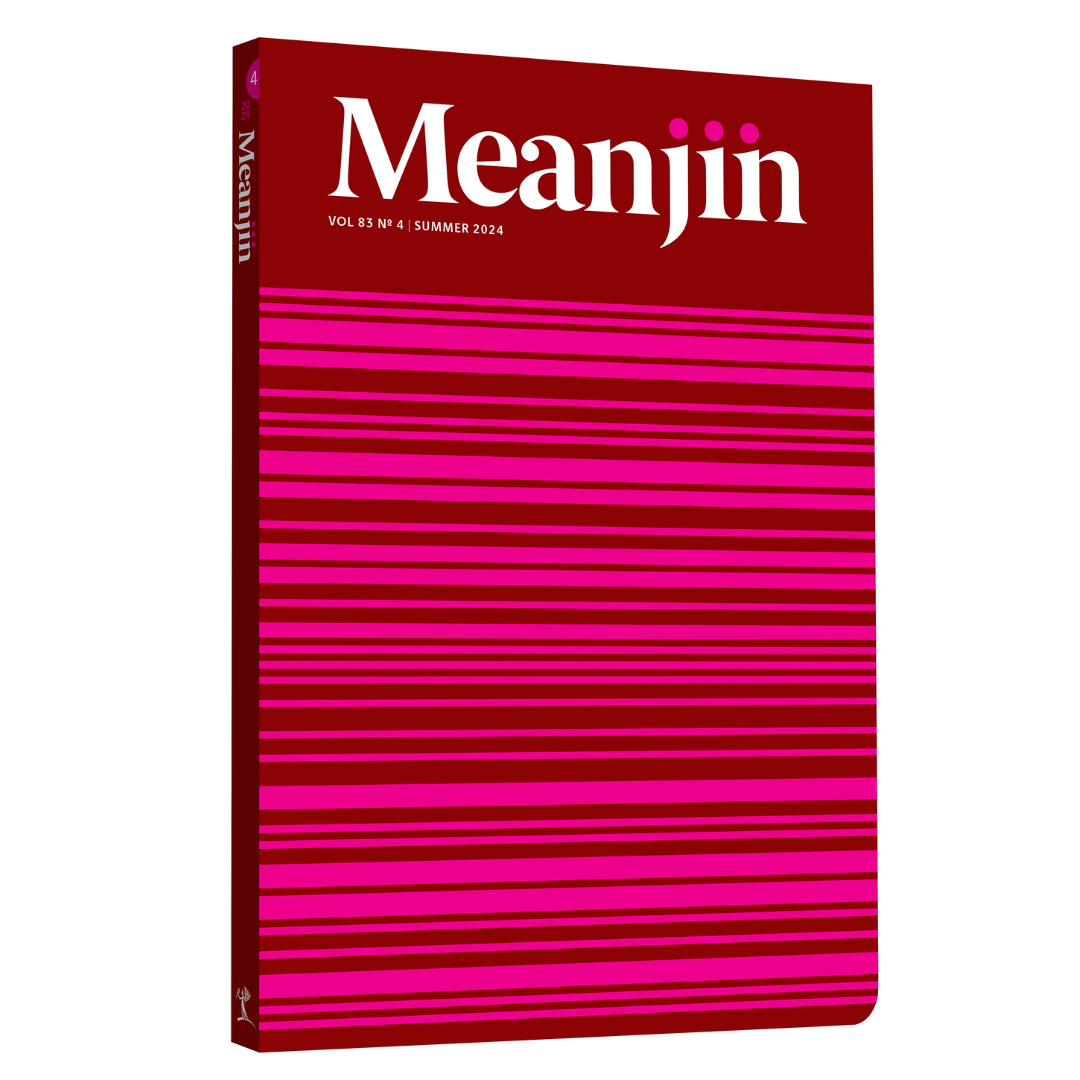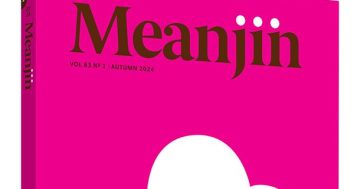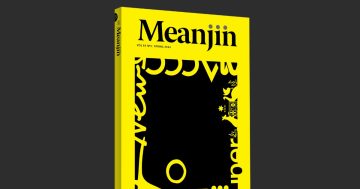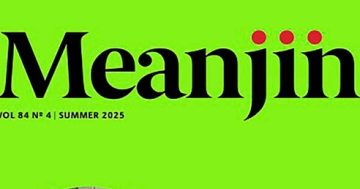
Meanjin Quarterly, Summer 2024 is edited by Esther Anatolitis. Photo: Supplied.
It’s a striking book cover, similar to the contents of Meanjin Summer 2024. Designed by Stephen Banham, it provokingly strips the journal’s identity down to the commodity form – with design triumphing over the transactional.
An influential advocate for arts and culture, editor Esther Anatolitis asks us to embrace Australia’s finest writers with Meanjin‘s superb summer of reading.
“The power of the artist has never been more crucial to our future – nor more imperilled,” she said.
“When mercenary technologies are deployed against writers, cultural practice is reduced to consumption, human creativity to generative ‘artificial intelligence’, and new work to ‘content’.
“Since 1940, Meanjin has proudly championed the work of writers and artists. Every editor has taken an uncompromising stand on the public value of this work, and Meanjin 83.4 Summer 2024 is no different.”
The editorial gives more perspective to the contents. Humanity is the stories we tell into being. Start the reading with Joe Geia’s Sing for the Black: From the Act to Treaty.
In this Carumba Institute Meanjin Oration: Uncle shows us that while culture evolves across millennia, it’s how we respect it today that counts – because it’s artists who keep the voice alive.
“My story is a story of challenge, success, sadness, joy, ongoing struggle and love,” Joe starts to elaborate.
“My show From Rations to Wages to Treaty is a curated story of song and images that speak to the experiences of many Indigenous people, focusing on those who have shown strength and given inspiration, so that all our stories can continue.
“From Rations to Wages to Treaty documents and sings these eras and what occurred and continues to occur for Indigenous peoples during these times. It has also become the template for my PhD thesis.
“It tells the story of my family and the leaders over multiple generations who have made significant inroads to the betterment of our peoples through activism, strength and resilience.”
There are other thought-provoking subjects, including state of the nation, fiction and poetry. We move through Ambelin Kwaymullina’s knowledge systems. Sit down in an interview with Gerald Murnane. Greet new life with Leni Shilton. Find Ben Walter’s remote. Reimagine George Williams’s university. Impose a new inconvenience on Ella Mittas. Throw down Nicholas Pickard’s gauntlet. Ask Rose Harriman’s powerful question. Don’t just stop there.
Uncle Joe shows us that while culture evolves over time, it’s how we respect it today that counts. There are many ways to recount those millennia – stories of creation, human evolution, environmental change, and political upheaval. The ultimate story, however, is the one about the most powerful force we know: the story itself.
On the other hand, the history of capitalism is the ongoing attempt – and the ongoing failure – to co-opt that power.
As Anatolitis points out: “The ‘news’ and ‘content’ divisions rending the ABC internalise this bleak diminution of journalism, literature and art. When – in the age of AI – the public broadcaster sees more than half its people as producers of nothing but interchangeable ‘content’, the heart of Australian culture shrinks.”
In his first editorial, founding editor Clem Christesen wrote: “Literature and art, poetry and drama do not spring into being at the word of command. Their life is a continuous process of growing within itself, and its suppression is death.”
Culture is precious. Play is how we learn. Art asks questions – and demands that we do the same.
Anatolitis expounds with this quote: “‘I’m not going to assert that somehow some part of me is infinite,’ says Gerald Murnane to our production editor Eli McLean in this season’s interview, ‘but I’ve found no evidence to the contrary yet’.”
Myths and legends. Theatre, artworks, scriptures, literature, education, journalism. Lore and law. There is considerably more than meets the eye.
Meanjin Quarterly, Summer 2024, Volume 83 No 4, edited by Esther Anatolitis, Melbourne University Publishing, $24.99





